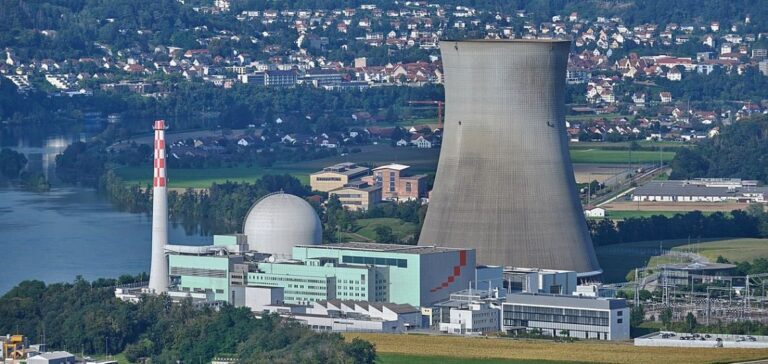The Swiss government is taking a proactive approach to today’s energy challenges.
The revision of the Nuclear Energy Act, scheduled for completion by the end of 2024, aims to lift the ban on the construction of new power plants, established following the 2017 referendum.
This initiative responds to the need to ensure the country’s energy security in the face of market developments and geopolitical pressures.
Albert Rösti, Minister of the Environment, Transport and Energy, says the revision is essential to keep all options open in the long term, given the growing demands on electricity supply.
The need for flexibility in the energy mix
The four nuclear power plants currently operating in Switzerland account for around a third of electricity production.
Their operating licence, which is unlimited subject to safety conditions, could be called into question by the lack of alternative generating capacity.
The government anticipates a potential energy deficit if renewable energies do not progress rapidly enough to replace the nuclear capacity that could be lost.
In view of this, the current legal prohibitions need to be revised to ensure sufficient flexibility in the future energy mix.
Economic challenges and stakes
The revision of the legislation does not necessarily mean the imminent construction of new power plants, but aims to avoid a regulatory deadlock that could compromise the country’s energy future.
The nuclear option is seen as a strategic lever for securing the country’s energy supply, especially as demand for electricity continues to rise.
The Swiss government is thus placing the emphasis on long-term planning, while allowing public and parliamentary debate to determine future directions.





















